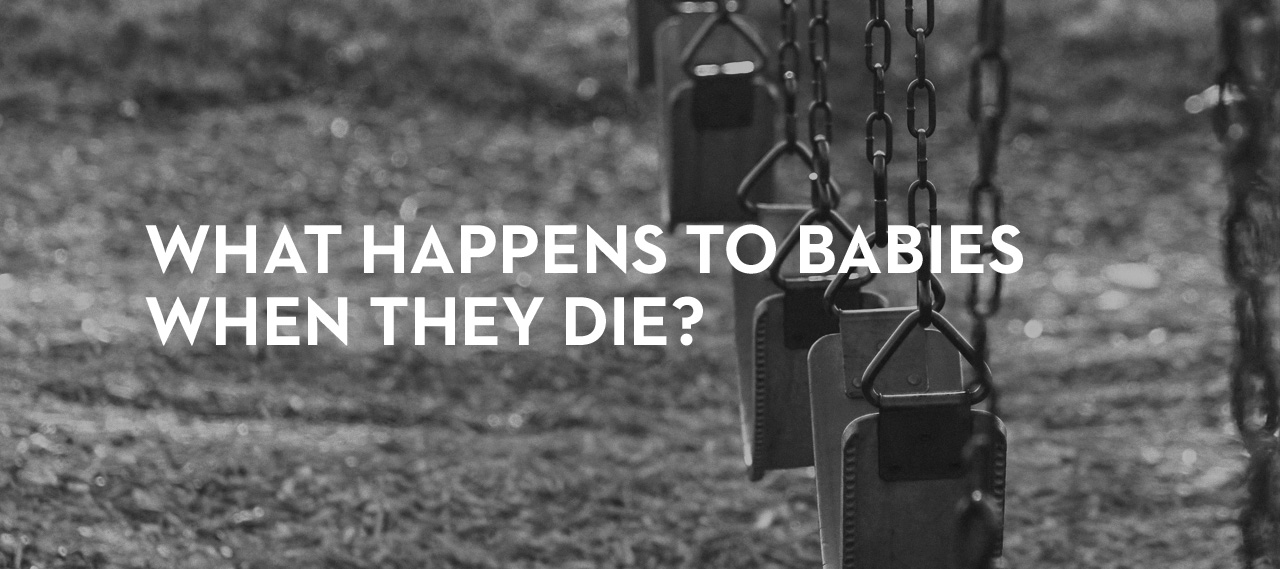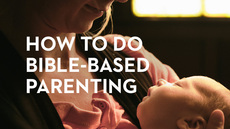I recently preached on the sixth commandment: “You shall not murder” (Exod. 20:13).
In the original language, the command is two simple words: “no murder.” Since the first word is not really debated, I spent an entire hour on the second word: murder. After dealing with issues such as capital punishment and just war, the second half of the sermon focused on the issue of abortion.
It was an intense sermon.
God woke me up at 4:30 a.m. to spend a few hours in prayer, preparing my heart. As I preached, I felt like I was running against a stiff headwind for an hour. I was so fatigued after one sermon that I called it a day. We replayed the sermon on video for the rest of the services, and I went home wiping tears from my eyes and listening to the sound of women and men weeping in our church. My soul just needed to get home to kiss my kids, hold their hands, hear their laughter, and go for a walk with them. Their presence is a healing gift of God’s grace.
The issue of abortion, along with miscarriage and the death of a baby, raises an important biblical question that pastors frequently receive, “Where do dead babies go?”
For me, this issue is deeply personal. We are blessed to have five healthy kids. But Grace also suffered a miscarriage years ago, and it’s a loss we mourn to this day. For some reason, I have a hunch it would have been a son.
The eternal fate of unborn children and infants is a mystery that has always haunted the church. There are three choices available as answers:
- All babies are elect and thus immediately translated into heaven, awaiting Jesus’ return and the finishing of his work of cosmic redemption.
- God chooses some babies for heaven and the rest are left to spend eternity in hell.
- All babies are reprobate and thus immediately translated into hell upon death, awaiting the final eternal judgment for their sin nature inherited from Adam.
I’ve never encountered a Christian theologian who holds to answer #3, which leaves answer #1 (universal infant salvation) and answer #2 (infant salvation). These are the two options that have been debated throughout Christian history.
An old question
From the very beginning of the church, this very emotional issue has been debated. Infant mortality rates were very high in the ancient world, causing great distress for parents concerned about their child’s eternal welfare.
In his book, Against Heresies, Irenaeus (130–202 A.D.) argued that Christ became an infant to sanctify infants. For the early church, however, the issue of salvation was tied to baptism. It was taught that infants baptized by the church would be allowed entrance into heaven. Infants who were not baptized were destined for hell, though theologians differed on the extent of their “torment.”
The Catholic church perpetuated this tight connection between baptism and salvation. To me, as someone baptized as a baby in the Catholic Church, this is superstitious. Parents wanting some assurance of salvation are prone to look to a sign such as baptism. But baptism does not save; only Jesus can accomplish that. We can sympathize with the anxiety a parent feels in losing a child and the concern they have for their child’s fate, but baptism is neither a savior nor any foundation upon which to build a house of hope to live in after the funeral.
Answering this question also requires that we not get sidetracked by baptism, but instead focus on the nature of original sin and infant responsibility for sin.
Age of accountability
Some teach an “age of accountability” which is both unbiblical and unhelpful. It assumes that someone is not morally responsible until they reach an age of reasoning ability.
However, a person does not go to sleep one night as an infant without moral responsibility and wake up the next morning as a child responsible for his or her conduct. Moral responsibility is not merely our cognitive thinking, but also our emotional understanding. It’s not simply off until one day it goes on like a light switch.
Rather, our moral responsibility should grow as we do physically. In this way, moral understanding is much like a dimmer switch: there is more illumination of right and wrong as we grow in wisdom with age.
One death knell to the false concept of the age of accountability are Paul’s words to Timothy in 2 Timothy 3:15: “from childhood you have been acquainted with the sacred writings, which are able to make you wise for salvation through faith in Christ Jesus.”
The word for “childhood” is “the period of time when one is very young—childhood (probably implying a time when a child is still nursing), infancy.”1 It is possible for even a young child to know the Scriptures because there is not an “age of accountability” as much as growing moral responsibility as we come to better understand the instruction of our conscience internally and God’s word externally.
Luke 2:52 says, “And Jesus increased in wisdom and in stature and in favor with God and man.” Jesus’ growth was holistic. He grew in every way as he aged. This was Jesus humbling himself, setting aside his glory and demonstrating humility by identifying with our humanity while retaining his divinity. Jesus’ example of growing in wisdom by the Spirit’s power as he grew physically is God’s intent for all who belong to him.
Respected Bible teachers
There are a number of respected Bible teachers who have offered varying answers to the question of infants and eternity. Their insights can help us better understand how to think through the issue.
Pastor Charles Spurgeon (1834–1892) believed in universal infant salvation arguing from the character of Jesus saying, “I cannot conceive it possible of him [Jesus] as the loving and tender one, that when he shall sit to judge all nations, he should put the little ones on the left hand, and should banish them for ever from his presence.”
Likewise, the London Baptist Confession of 1689 says, “Elect infants dying in infancy are regenerated and saved by Christ through the Spirit; who worketh when, and where, and how he pleases; so also are all elect persons, who are incapable of being outwardly called by the ministry of the Word.”
Theologian Millard Erickson holds the same view, albeit with much weaker theological reasoning. In an effort to provide strength to the concept of universal infant salvation, he weakens the sin nature inherited from our first father Adam in relation to unborn children.
Dr. John Piper holds to universal infant salvation, based on a reading of Romans 1:19–20, saying, “Because I don’t think little babies can process nature and make conclusions about God’s grace, glory or justice, it seems they would fall into the category of still having an excuse.”
Dr. Ronald Nash argues that all infants who die go to heaven because infants are incapable of moral good or evil. He cites Deuteronomy 1:39 and 2 Corinthians 5:10 and states, “Infants are innocent in the sense that whatever their natural disposition to sin may be, their status as infants makes it impossible for them to perform good or evil acts. Therefore they are not moral agents.”
Likewise, R.A. Webb remarks, “that future and final retribution will be [proportional] to ‘deeds done in the body.’ Dead infants have been prevented by the providence of God from committing any responsible deeds of any sort in the body, and consequently infants are not damnable upon these premises, and there is no account in Scripture of any other judgment based upon any other grounds.”
Dr. Wayne Grudem, agreeing with Spurgeon and Piper that infants are elected to salvation the same way that adults are, is far more reserved in his statements about whether or not all infants are saved. “How many infants does God save in this way?” he writes, “Scripture does not tell us, so we simply cannot know. Where Scripture is silent, it is unwise for us to make definitive pronouncements.”
Grudem does, however, hold out particular hope for the children of believers, due to God’s pattern in Scripture, while not precluding the fact that even the infants of unbelievers may possibly be among the elect. Grudem, along with many others, uses 2 Samuel 12:23 as likely evidence that infants are saved.
What I tell my kids and my people
My wife has miscarried and whenever I think about it, I tear up as it feels like someone is missing and our Fab Five should be the Stellar Six. I pastor men and women who ask me, with tears streaming down their face and trembling in their voice, what happened to their deceased child. Some have suffered miscarriages, others had abortions, some experienced stillbirths, and others had a baby die in infancy. A friend of mine has endured some twenty miscarriages along with his wife. For me, this issue is not merely theoretical but deeply personal, pastoral, and emotional.
Not only do people need answers, they also need love, compassion, prayer, a listening ear, and an available friend. We cannot always fix things, but we can provide comfort and companionship. No amount of theology can compensate for the presence of somebody who does not try to answer all the questions or speed up the grieving process but is just there when you need them.
For those who have endured loss amidst loneliness, without a friend to provide comfort, I apologize for that double grief. And I would encourage you to use that dark season of the soul to compel you to use what you learned to be a comforter to others who are struggling as you were. You may not have had the friend you needed, but by God’s grace you can become that friend to someone else, which can be a means of healing for you and the person you are walking with through the valley of the shadow of death.
Like many things in the Bible, the question of what happens to a baby when they die requires a response of faith. In Scripture, God provides some clear principles, but not a clear answer. Here’s what I tell myself, my wife, our kids, and the people I am honored to spiritually father at our church:
1. God became a baby in his mother’s womb
Theologians tend to tell us that God became a man, which is true. But, he became a baby in his mother’s womb before he grew to be a man. In this, we see that Jesus identifies with the unborn as well as the born.
Hebrews 4:15 tell us regarding Jesus, “For we do not have a high priest who is unable to sympathize with our weaknesses.” Jesus knows life as a baby; Jesus knows what it is like to have someone you love die, as he wept at the death of his friend Lazarus; and he has suffered and tasted death. Jesus identifies with our frailty and humanity at every stage of human development: unborn, infant, child, adolescent, and adult.
Jesus—unlike any other concept of God—has empathy and insight for both the baby and those who love the baby and mourn his or her death. In Jesus, we have a God who relates to us and invites us to himself for comfort and hope. More than just answers, he also offers his grace and presence.
2. Psalm 51:5 says that we are sinners from the womb of our mother
This passage tells us that an unborn child is not only a person who bears God’s image, they are also a sinner who needs a savior.
3. Psalm 139:13–14 says that God knows us and is involved with us intimately from our mother’s womb
The passage reads, “For you formed my inward parts; you knitted me together in my mother’s womb. I praise you, for I am fearfully and wonderfully made. Wonderful are your works; my soul knows it very well.” A baby is not the product of happenstance, circumstance, or chance, but rather providence.
4. Psalm 22:9–10 says that God can save us from the womb
The passage reads, “Yet you brought me out of the womb; you made me trust you, even at my mother’s breasts. On you I was cast from my birth; and from my mother’s womb you have been my God.” Examples of this in Scripture include Isaiah (Isa. 49:1–7) and Jeremiah (Jer. 1:4–5), both of whom were called by God for prophetic ministry from their mothers’ wombs. Also, in Luke 1:15, John Baptizer was promised to “be filled with the Holy Spirit, even from his mother’s womb.”
5. Jesus loves children—born and unborn
The Bible uses the same word for child (brephos) speaking of baby Jesus in Mary’s womb (Luke 2:12) and the kids brought to Jesus for a moment like a Santa at the mall where they had fun and hung out with him (Luke 18:15). In Luke 18:15–17 we read, “Now they were bringing even infants to him that he might touch them. And when the disciples saw it, they rebuked them. But Jesus called them to him, saying, ‘Let the children come to me, and do not hinder them, for to such belongs the kingdom of God. Truly, I say to you, whoever does not receive the kingdom of God like a child shall not enter it.’”
Jesus welcomed children, and said that his eternal kingdom was custom built for kids to be with him forever. This picture of Jesus welcoming children should be a great hope and comfort for parents who have lost a baby. The image of Jesus holding our miscarried child on his lap in his eternal kingdom awaiting for our day of entrance is the single most comforting image that comes to mind when I ask myself what has happened to the child we lost.
6. There is a case study of a deceased baby in the Bible that gives much hope, if not a degree of assurance, regarding the salvation of deceased children
2 Samuel 12:15–23 tells the story of King David’s child, who died very young:
And the LORD afflicted the child that Uriah’s wife bore to David, and he became sick. David therefore sought God on behalf of the child. And David fasted and went in and lay all night on the ground. And the elders of his house stood beside him, to raise him from the ground, but he would not, nor did he eat food with them. On the seventh day the child died. And the servants of David were afraid to tell him that the child was dead, for they said, “Behold, while the child was yet alive, we spoke to him, and he did not listen to us. How then can we say to him the child is dead? He may do himself some harm.” But when David saw that his servants were whispering together, David understood that the child was dead. And David said to his servants, “Is the child dead?” They said, “He is dead.” Then David arose from the earth and washed and anointed himself and changed his clothes. And he went into the house of the LORD and worshiped. He then went to his own house. And when he asked, they set food before him, and he ate. Then his servants said to him, “What is this thing that you have done? You fasted and wept for the child while he was alive; but when the child died, you arose and ate food.” He said, “While the child was still alive, I fasted and wept, for I said, ‘Who knows whether the LORD will be gracious to me, that the child may live?’ But now he is dead. Why should I fast? Can I bring him back again? I shall go to him, but he will not return to me.”
David had hope for his deceased child and so should we.
7. God is a perfect Father
Ultimately, the Father determines which children he will spiritually adopt into his family. This is his decision. It is not the decision of parents who have sent their children on to him, nor the theologians who try and give a guarantee to grieving parents.
The Father decides. And, that is good news.
The same Father who sought me, saved me, and sealed me is the same Father I am trusting to do what is right and best with the baby we lost. And I trust him. I trust him fully. I trust him completely.
In this matter, I find the doctrines of predestination and election to be greatly comforting. I am a father who worships a Father who seeks spiritual children who are unable to seek or find him because of their spiritual deadness—but he finds them. I am a father who worships a Father who brings life where there is death. I am a father who worships a Father that has given me his Father’s heart for my children.
And while I do not have a clear promise from Scripture, I do trust my Father and am certain—by faith guided by Scripture and rooted in the character of the Father—that one day in his presence, by his grace, for his glory, I will hug my child while Jesus wipes every tear from my eye and I will weep no more because my Father has taken care of everything.















